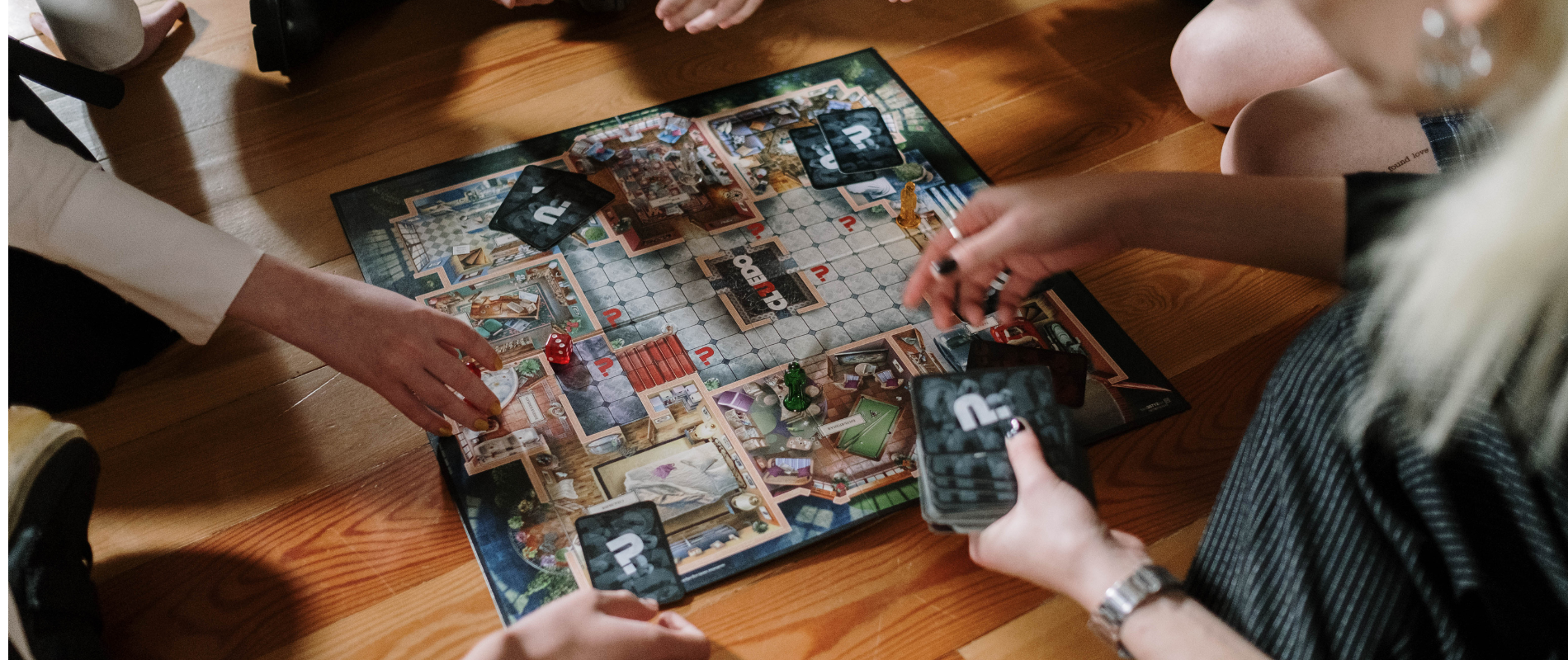Are you caught in the relentless grip of gambling, watching your hard-earned money vanish before your eyes? It’s a challenging cycle to break, but not impossible. Discovering effective strategies to halt your gambling habits can pave the way to financial recovery and a healthier lifestyle. In this guide, we’ll explore practical steps to regain control, curb the urge to gamble, and start saving money. Embark on this transformative journey with us to reclaim your peace of mind and financial stability.
Understanding Your Gambling Habits
Becoming aware of your gambling habits is the first step towards recovery. It involves a deep dive into the patterns, triggers, and the emotional or situational contexts that lead you to gamble. Recognizing these aspects can be challenging but is essential for developing a strategy to quit gambling. Most individuals find that their gambling is not just about the financial aspect but also about dealing with uncomfortable emotions or situations.
It’s crucial to identify the motivations behind your gambling. For some, it might be a way to escape reality, seek excitement, or socialize. However, understanding these motivations can reveal healthier alternatives to fulfill these needs without resorting to gambling. Additionally, keeping a journal of your gambling activities can offer insights into your behavior, helping you to notice patterns and triggers. This record-keeping is a practical step towards gaining control over your gambling habits.
Another important aspect is to recognize the consequences of your gambling, not just financially but also on your relationships, work, and personal growth. Acknowledging these impacts can be a powerful motivator to seek change and can help you to realize the full extent of what you’ve been sacrificing to gambling.
| Aspect | Insight | Alternative Action |
|---|---|---|
| Emotional Triggers | Identifying feelings that prompt gambling | Seeking emotional support or therapy |
| Situational Triggers | Recognizing situations that lead to gambling | Avoiding these situations or finding distractions |
| Financial Consequences | Acknowledging financial loss and debt | Creating a budget and savings plan |
| Relationship Impact | Understanding the effect on personal relationships | Rebuilding trust through open communication |
| Personal Growth | Noticing the stagnation in personal development | Focusing on new hobbies and skills |
Understanding your gambling habits is not just about recognizing when and why you gamble but also about comprehending the profound effects it has on various aspects of your life. This awareness is crucial for anyone looking to stop gambling and save money. By confronting these habits head-on, individuals can begin the journey towards recovery, equipped with the knowledge and strategies needed to overcome their gambling issues. The process of understanding your gambling habits is a critical step in regaining control, allowing for the development of a concrete plan to move forward.
Setting Realistic Financial Goals
Embarking on a journey to stop gambling and save money necessitates a solid foundation, one that is built upon realistic financial goals. The clarity and direction provided by well-defined goals can be the compass that guides you through the stormy seas of financial temptation. It’s not just about declaring an end to gambling; it’s about understanding what you’re working towards and why. This understanding begins with recognizing your current financial situation, acknowledging the depth of the gambling issue, and then setting attainable financial milestones.
First and foremost, it’s crucial to conduct a thorough review of your finances. This involves listing all sources of income, monthly expenses, debts, and savings. Once you have a clear picture, you can start setting short-term, medium-term, and long-term goals. Short-term goals could include creating and adhering to a monthly budget, paying off small debts, or saving a fixed amount each month. Medium-term goals might focus on saving for a significant purchase or an emergency fund, while long-term goals could revolve around retirement savings or paying off a mortgage. Remember, the importance of these goals lies not just in their formulation but in their feasibility and relevance to your personal financial recovery.
Additionally, it’s essential to develop a mechanism for tracking your progress. This could be as simple as a spreadsheet or as complex as a financial management app. Monitoring your achievements not only provides motivation but also offers an opportunity for reassessment and adjustment of goals as your financial situation evolves. Celebrating small victories along the way can serve as a powerful antidote to the allure of gambling, reinforcing the value of financial independence over fleeting thrills.
Breaking Down Financial Goals into Manageable Steps
To make your financial goals more attainable, it’s helpful to break them down into smaller, manageable steps. This approach ensures that the path towards your financial objectives is clear and achievable. For instance, if one of your goals is to save a certain amount of money within a year, calculate the monthly or even weekly savings required to reach that target. By doing so, you transform a seemingly daunting task into a series of smaller, actionable steps, making the overall goal less overwhelming and more approachable.
Utilizing Tools and Resources for Financial Planning
In today’s digital age, a plethora of tools and resources are available to assist in financial planning and goal setting. From budgeting apps that track spending in real-time to online calculators that project savings growth, these tools can provide invaluable support in your quest to stop gambling and save money. By leveraging technology, you can gain insights into your spending habits, identify areas for improvement, and stay focused on your financial goals. Remember, the key to successful financial planning lies in consistency and commitment to your objectives.
- Conduct a comprehensive review of your financial situation.
- Set clear, achievable financial goals.
- Break down goals into manageable steps.
- Track your progress and celebrate small victories.
- Leverage digital tools for budgeting and financial planning.
Finding Healthy Alternatives
Finding healthy alternatives to gambling is crucial for anyone looking to break free from the grip of gambling addiction. The key is to identify activities that are not only enjoyable but also fulfilling, providing a sense of achievement or relaxation that gambling previously monopolized. Engaging in new hobbies or revisiting past interests can offer a fresh perspective and a positive outlet for the time and energy that gambling once consumed.
Physical activities, such as sports, hiking, or yoga, can be particularly beneficial. They not only improve physical health but also release endorphins, natural mood lifters that can reduce stress and improve mental well-being. Similarly, creative pursuits like painting, writing, or playing a musical instrument can offer a sense of accomplishment and an expressive outlet, diverting attention from the urge to gamble. Social activities, such as joining clubs or volunteer groups, can help rebuild the social connections often damaged by gambling, providing support and a sense of community.
It is also important to recognize the triggers that lead to gambling and to seek out alternatives that specifically address these triggers. For instance, if gambling is a response to stress, finding stress-relief activities that work for the individual is key. This might include meditation, deep-breathing exercises, or engaging in a hobby that requires focus and concentration. By identifying and implementing healthy alternatives, individuals can gradually reduce their reliance on gambling as a coping mechanism, paving the way for a healthier, more balanced life.
- Engage in physical activities like sports or yoga to improve health and mood.
- Explore creative pursuits such as painting, writing, or playing music for expressive outlets.
- Join social clubs or volunteer groups to rebuild connections and find support.
- Identify personal gambling triggers and find specific activities to counteract them.
- Practice stress-relief techniques such as meditation or deep-breathing exercises.
Building a Support Network
Embarking on the journey to stop gambling and save money is a formidable challenge that requires not just personal resolve but also a robust support network. This support network is crucial because it provides emotional backing, practical advice, and the necessary encouragement to navigate through difficult moments. The essence of building a strong support network lies in identifying individuals who genuinely understand your struggle, respect your decision to quit gambling, and are willing to stand by you throughout this journey.
First and foremost, family and friends constitute the primary layer of your support network. These are the people who care for you unconditionally and can offer the emotional and sometimes financial support you need. However, their love and concern might not always translate into effective support if they do not fully comprehend the complexities of gambling addiction. Therefore, it is beneficial to extend your network to include professionals and peers who have experienced similar challenges. Therapists, counselors, and members of support groups like Gamblers Anonymous can offer invaluable insights and strategies that have been proven effective in overcoming gambling addiction.
Moreover, leveraging online forums and social media groups can provide an accessible and constant source of support. These platforms allow for anonymity and flexibility, enabling you to seek help and share your experiences at any time. It’s essential to remember that a support network is not just for providing comfort during setbacks but also for celebrating your milestones and progress.
- Identify and reach out to family and friends who understand and support your journey.
- Seek professional help from therapists or counselors specialized in gambling addiction.
- Join support groups, either in person or online, such as Gamblers Anonymous.
- Explore online forums and social media groups dedicated to recovery from gambling.
- Remember to communicate openly with your support network, sharing both your challenges and achievements.
Building a support network is an ongoing process that evolves as you move forward in your journey. It requires patience, effort, and the willingness to be vulnerable. By surrounding yourself with a diverse group of supportive individuals, you not only enhance your resilience against the urge to gamble but also enrich your life with meaningful relationships and experiences. The path to recovery may be fraught with challenges, but with a solid support network, the journey becomes more manageable and the goal of a gambling-free life more attainable.
Managing Setbacks and Successes
Embarking on the journey to stop gambling and save money is fraught with both challenges and victories. Understanding how to effectively manage both setbacks and successes is crucial for sustained progress. When faced with setbacks, it’s vital to view them not as failures but as opportunities for learning and growth. This perspective shift allows individuals to analyze what led to the slip and devise strategies to prevent future occurrences. On the other hand, celebrating successes, no matter how small, can significantly boost morale and motivation. However, it’s important to celebrate in ways that do not trigger the urge to gamble.
Setbacks are an inevitable part of recovery. When they occur, it’s essential to practice self-compassion and seek support from friends, family, or a professional. Revisiting and possibly adjusting your recovery plan can also be beneficial. Successes, conversely, should be acknowledged and rewarded. Creating a reward system that promotes healthy behaviors and reinforces your commitment to quitting gambling can be very effective. It’s also beneficial to set new goals, both short and long term, to keep moving forward.
Persistence, patience, and perseverance are key in navigating the ups and downs of recovery. Remember, each day without gambling is a step towards a more secure financial and emotional future. Celebrate the journey and the person you are becoming through this process. It is not the absence of setbacks that defines success but the ability to continue moving forward despite them.
- View setbacks as learning opportunities.
- Celebrate all successes to boost morale.
- Practice self-compassion and seek support when needed.
- Adjust your recovery plan as necessary.
- Create a healthy reward system to reinforce new behaviors.
Further Insights on Managing Setbacks and Successes
Delving deeper into the nuanced journey of overcoming gambling addiction, it becomes apparent that managing setbacks and successes is not a linear process. Each individual’s path is unique, filled with its own set of challenges and victories. Recognizing this non-linearity and embracing the journey’s fluid nature is essential. It’s not just about the number of days since the last bet but about understanding the underlying triggers, learning healthier coping mechanisms, and building a supportive network. This comprehensive approach ensures a more robust foundation for lasting change.
A Deeper Dive into Recovery Dynamics
Exploring the dynamics of recovery further, we see the importance of adaptability and continuous self-reflection. The journey is as much about rediscovering oneself as it is about quitting gambling. Engaging in new hobbies, reconnecting with loved ones, and contributing to the community can fill the void left by gambling and provide a sense of purpose and fulfillment. This holistic view of recovery emphasizes that overcoming gambling addiction is not the end goal but the beginning of a more meaningful and enriched life.
In conclusion, managing setbacks and successes in the journey to stop gambling and save money requires a balanced approach, incorporating self-compassion, support, and continuous personal growth. Each day offers a new opportunity to strengthen one’s commitment to this life-changing path. Embrace the journey with an open heart and mind, and celebrate each step towards a brighter, gamble-free future.
Laura Johnson is a seasoned board game strategist with a knack for blending game theory and betting insights. With over a decade of experience in the gaming community, Laura excels in analyzing game mechanics and predicting outcomes, both on the board and in betting scenarios. Her expertise extends to helping players enhance their strategies, whether they’re competing in a game night or placing bets on game-related outcomes. Laura’s unique approach makes her a valuable resource for those looking to elevate their gaming and betting experiences.







